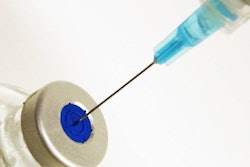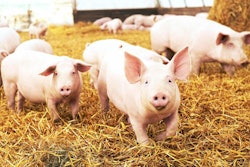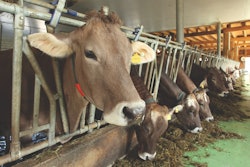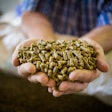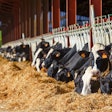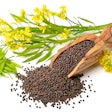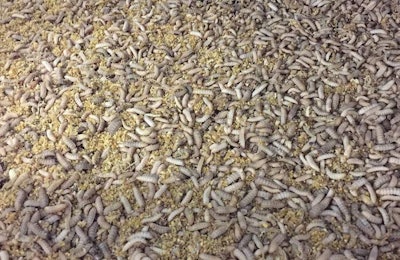
Despite focus on aquaculture, poultry may be best suited to insect-based protein, research concludes.
Aquaculture may be the center of most hype regarding insect-based protein, but poultry may actually stand to benefit the most from a diet that includes insect meal.
According to a review published last month in the Annals of the Entomological Society of America, most species benefit from eating insect-based proteins in limited amounts — including pets and many exotic animals. But fish and poultry, both species that eat insects in their natural environments, may see benefits at higher inclusion rates than other species.
In many species, digestibility begins to decrease when insect meal represents more than 5-10% of the animal’s diet, likely due to extremely high fiber content of insect exoskeletons, according to Liz Koutsos, the lead author on the paper and CEO of insect meal producer EnviroFlight.
Insects hold particular promise as a source of protein for fish, poultry and swine, according to the study. In poultry, insects can be used as a full replacement of other protein sources without negatively affecting the bird’s performance. The use of insect meal in poultry diets may come with additional benefits from a consumer perspective as demand increases for “all-natural” poultry products, according to the researchers.
Reduced performance in fish
Fish also benefit from the inclusion of insect meal, but complete replacement of other protein sources has been associated with impaired performance in some studies, according to the Entomological Society review. In addition to the question of digestibility — which Koutsos said drops off at 20-25% inclusion — insects are also a poor source of essential omega-3 fatty acids, which may lead to reduced performance in fish species. The limited availability of omega-rich protein sources remains a major pain point in aquaculture.
Swine may also benefit from insect-based protein, according to Koutsos, especially during the nursery phase. Recent research has found that black soldier fly larvae meal may be a suitable replacement for soybean meal and fishmeal in nursery pig diets.
But there are also economic factors to consider, Koutsos said. Prices for insect meal remain high, and replacing common ingredients such as soy with insect-based protein may not be practical in commercial animal feed.
“Commercialization costs are still high,” Koutsos said. “We do anticipate that cost will go down, so in the future we may very well talk about that alternative, but today we are probably not.”
Insect meal is a more viable replacement for premium protein ingredients, Koutsos said, especially fishmeal, poultry or even bone meal.

